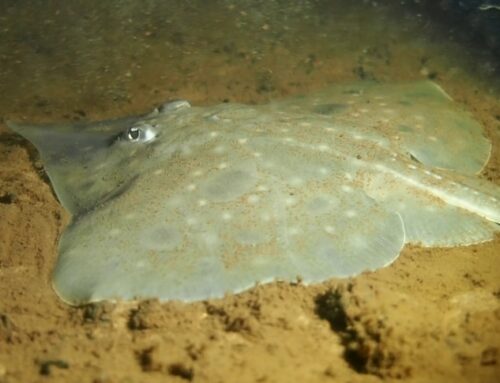Man pleads guilty to illegal cannabis cultivation in Monterey County federal case.
December 24, 2024
Nestled within the wooded ridgelines and folds of Big Sur, a man set up shop to build a large-scale, illegal cannabis operation in the Los Padres National Forest.
On Dec. 17, 2024, the man, whose name is Jacinto Correa Cruz, a 56-year-old Mexican national, pleaded guilty in federal court to destroying this land in pursuit of manufacturing and distributing marijuana plants, according to the U.S. Attorney’s Office for the Northern District of California.
An environmental damage assessment found that the illegal operation diverted and used approximately 33,780 gallons of water a day in an area that was experiencing severe drought conditions. Additionally, the site was found to be contaminated with several pesticides, many of which are banned or severely restricted.
Fixing the environmental damage to this area cost over $92,540 per site.
“Jacinto Correa Cruz helped poison the pristine lands of the Los Padres National Forest,” said Robert Tripp in a press release, Federal Bureau of Investigation (FBI) San Francisco Special Agent in Charge.
“He now stands accountable for the damage that will take years to heal. We will continue to stand firm with our federal, state, and local partners to keep our lands safe and prevent further depredation.”
Correa Cruz was arrested in July 2022 after agents with the US Forest Service along with other federal and state law enforcement agencies conducted a search of one of the sites within what’s referred to as the “Ventana Complex” located within the Ventana Wilderness region. The area is known as a biodiversity hotspot, home to more threatened and endangered species than any other national forest in California, and regularly used by tagged California condors, a critically endangered species under the Endangered Species Act.
According to court documents, the initial investigation by U.S. Forest Service agents took place in 2020 and 2021, identifying six separate marijuana cultivation sites located within close proximity to Tassajara Creek. One of the sites of interest, a one-acre site known as the “Zen cultivation site” bore significant findings during the execution of a search warrant issued by a judge from the U.S. Attorney’s Office for the Northern District of California.
The Zen cultivation site consisted of six plots that contained a total of approximately 10,000 marijuana plants, in which law enforcement discovered Correa Cruz along with numerous firearms, camping areas with tents, and a kitchen area with thousands of pounds of trash along with dead animal parts––including four fawn deer feet, two rabbit feet and two rattle snake rattles.
Of the pesticides used, perhaps one of the most notable was carbofuran, which toxicology screening indicated that there was widespread contamination across the one-acre site as well as within the backpack pesticide sprayers located on the site.
Carbofuran is a highly toxic insecticide banned from any legal use in the United States due to its known harm to humans and the environment. According to court documents, it is considered one of the most acutely toxic pesticides ever used on agricultural crops in the U.S., and can be fatal to humans in amounts as small as 1/4-teaspoon.
The Integral Ecology Research Center team found that at least 45 pounds of diphacinone, a rodenticide, had been used at the site. This chemical is known to cause poisoning deaths in sensitive and endangered species, posing a significant risk to all wildlife.
Animals like the California condor are especially vulnerable to secondary poisoning by consuming animals that died from the rodenticide.
“The illegal cultivation of marijuana on public land poses significant environmental risks to public lands and wildlife that must be combatted,” said United States Attorney Ismail J. Ramsey in the press release. “We will continue to work with our law enforcement partners to prosecute those who abuse natural resources and harm the environment while illegally growing marijuana on federal land.”
Illegal grow operations are not new to the area and pose not only environmental challenges but also threatens legal cannabis revenue. Similarly, back in July 2018, another illegal grow was uncovered at a remote site in rural Carmel Valley, where authorities also found banned pesticides, including carbofuran.
Based on the findings of an investigation into a large wildfire that occurred nearby in 2020 known as the Dolan Fire—which scorched 125,000 acres of the Los Padres National Forest, the Dolan Fire was found to be directly associated with another illegal marijuana cultivation site in the region and responsible for the death of 11 California condors.
The tributary on which the Zen cultivation site is located drains to Tassajara Creek, which is used as a potable and recreational water source for rural communities nearby, including a resort located downstream, according to court documents.
Correa Cruz faces a maximum statutory penalty for each offense of 20 years in prison and a fine of $1,000,000, plus restitution; his sentencing hearing is scheduled for March 4, 2025 before a United States District Judge.
Search
RECENT PRESS RELEASES
Related Post




